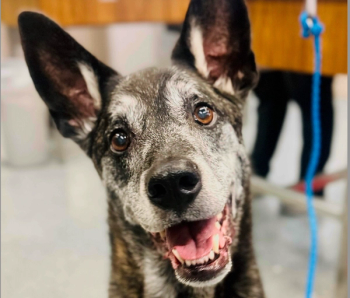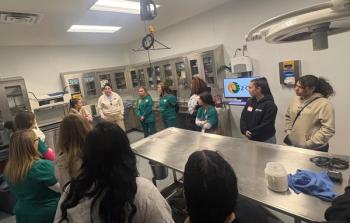
Letter to dvm360: Why are we still ignoring One Health?
Veterinarians aren't just for cats and dogs. They're crucial to human health and global security, says UC Davis dean, and should be partners with physicians, farmers and world leaders more than ever before.
Almost daily, as a society, we experience the connection and consequences between the health of humans, animals and the environment. The Zika virus -- carried by mosquitoes and spreading in many regions in the world -- is suspected of causing thousands of human birth defects in Brazil and was declared a public health emergency by the World Health Organization. As much as 75 percent of new or re-emerging diseases affecting humans are of animal origin.
New infectious diseases, climate change and a moving political landscape are some of the changes which veterinarians, physicians, scientists and other health and environmental professionals must adapt to in meeting these global challenges. That's where we know the emerging approach known as One Health comes in, uniting these professionals in many parts of the world to address complex problems that recognize the vast interrelationships between human, animal and environmental health.
One Health harnesses the power of collaborative expertise to solve the pressing issues we face in our mobile society. For example, early detection and prevention of the Ebola virus outbreak in Africa in 2014 was aided by a team of UC Davis investigators, including veterinarians. This was not the case in a later African outbreak, where a later response allowed the virus to spread in other parts of the world. In the 1990s, the first cases of mad cow disease in cattle in the United Kingdom and West Nile virus in birds were first detected or confirmed by astute veterinary pathologists who understood the One Health approach.
A new report projects an era of change for the future of veterinary medicine.
Veterinarians may be known for their care of cats and dogs, but they also play a critical role in improving and safeguarding the health of humans and ensuring food safety, according to
It is critical that community, government and university leaders -- together with veterinarians and other health professionals -- support a united One Health approach to solving rapidly emerging diseases on a local and global scale.
Michael Lairmore, DVM, PhD
Dean and Distinguished Professor
University of California, Davis, School of Veterinary Medicine
Newsletter
From exam room tips to practice management insights, get trusted veterinary news delivered straight to your inbox—subscribe to dvm360.






